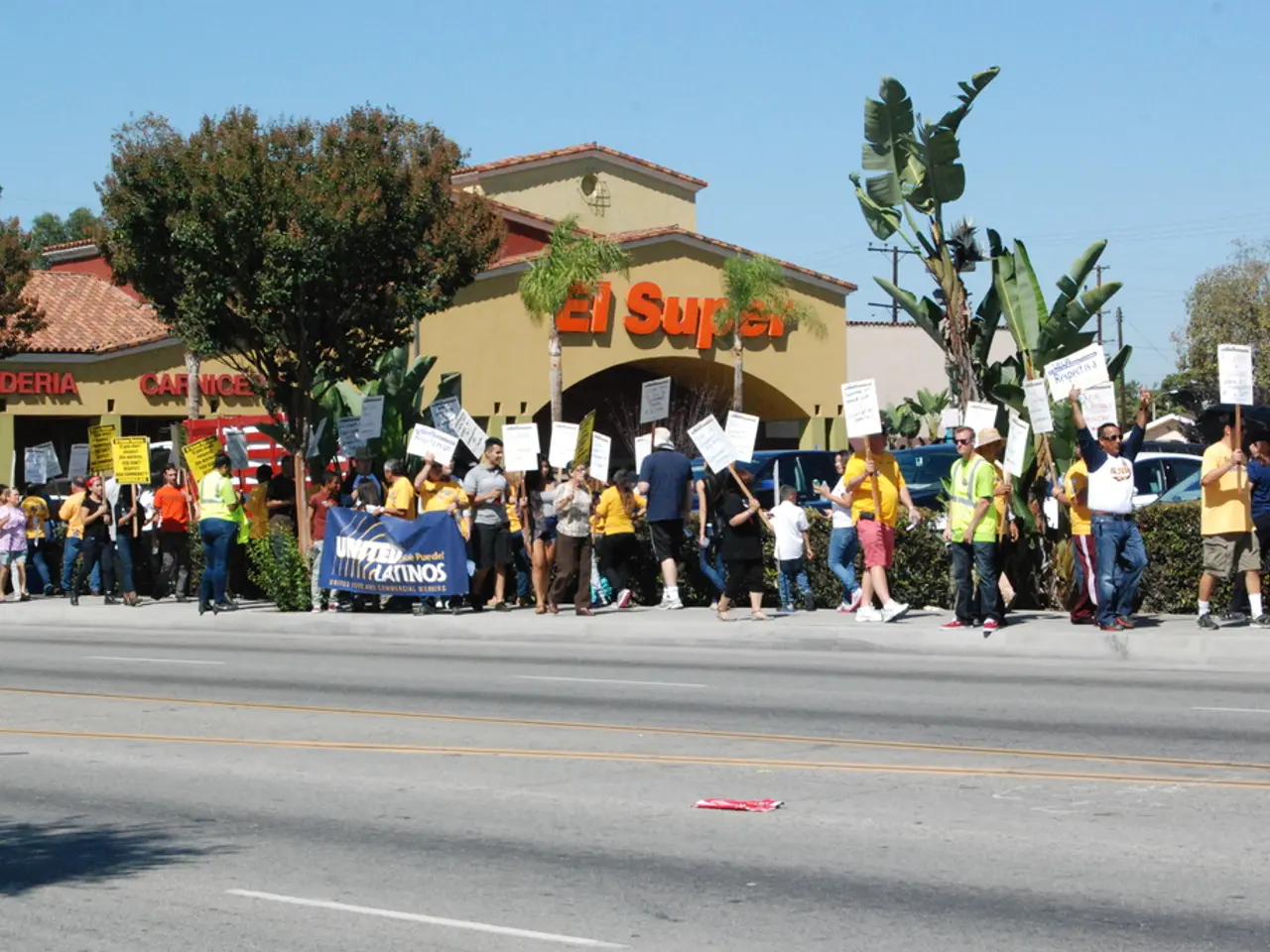Strategies for Efficient Political Campaign Leadership
In the dynamic world of political campaigning, success hinges on a blend of traditional and cutting-edge approaches. Here, we delve into the top strategies that political leaders should employ to navigate the contemporary political landscape effectively.
1. **Crafting Compelling Political Narratives**
Storytelling techniques are instrumental in connecting with voters emotionally. By sharing personal anecdotes, behind-the-scenes insights, and interactive content, candidates can engage voters on social media platforms, fostering a deep emotional connection.
2. **Social Media Promotion**
Social media platforms like Facebook and Twitter offer a powerful means of reaching a vast audience, particularly younger voters. By creating personalised messages, engaging in real-time discussions, and building a strong online presence, campaigns can effectively resonate with their target demographic.
3. **Cohesive Print and Digital Strategy**
A combined print and digital strategy can significantly enhance voter recognition and engagement. Traditional printed materials, such as flyers and brochures, can complement digital campaigns to reach voters across all channels.
4. **Staying on Message**
Maintaining a clear and consistent message is essential. A concise slogan that encapsulates a candidate's brand value should be used consistently across all communications.
5. **Embracing Local and State-Level Campaigns**
Investing in local and state-level races is crucial for building a strong political foundation. This strategy allows candidates to connect with voters directly, build a bench of future candidates, and influence policy at the grassroots level.
6. **Voter Engagement and Feedback**
Encouraging active participation through voter engagement tools like polls, Q&A sessions, and live discussions can foster a loyal supporter base. Listening to voter feedback and adapting strategies in real-time can also enhance campaign effectiveness.
7. **Utilizing Electoral Analytics**
Data analytics can help understand voter trends and preferences, enabling the refinement of campaign strategies and personalisation of voter outreach, thereby increasing engagement and effectiveness.
Effective campaign management requires a strong digital presence, a solid team, strategic planning, and the ability to adapt to changing circumstances. By embracing these strategies, political leaders can increase their chances of winning elections and influencing public opinion.
- Maximizing Resources through Digital Campaigns
Employing various resources such as blogs, email campaigns, and ads can boost a digital campaign's reach and impact. These tools can be used to share policy-and-legislation updates, general-news articles, and campaign announcements.
- Targeted Voter Outreach via Social Media and Email
Voter targeting is crucial in contemporary politics. By analyzing voter demographics and preferences, campaigns can tailor content and ads for more effective engagement on social media and email platforms.
- Leveraging Social Media for Policy Advocacy
Social media can serve as a powerful platform for political leaders to voice opinions on policy-and-legislation and engage in discussions with constituents. This can help leaders build a supportive base and influence the direction of policy-and-legislation.
- Managing Crises through Digital Channels
In times of crisis, digital channels can be used to communicate updates, address concerns, and reassure voters. This requires a swift and sensitive response to maintain public trust and support.
- Monitoring and Evaluating Campaign Effectiveness
Breaking down digital campaign performance metrics, such as engagement rates, reach, and click-through rates, can provide insights into campaign effectiveness. This data can then be used to adjust strategies and optimize future campaigns for higher success.








